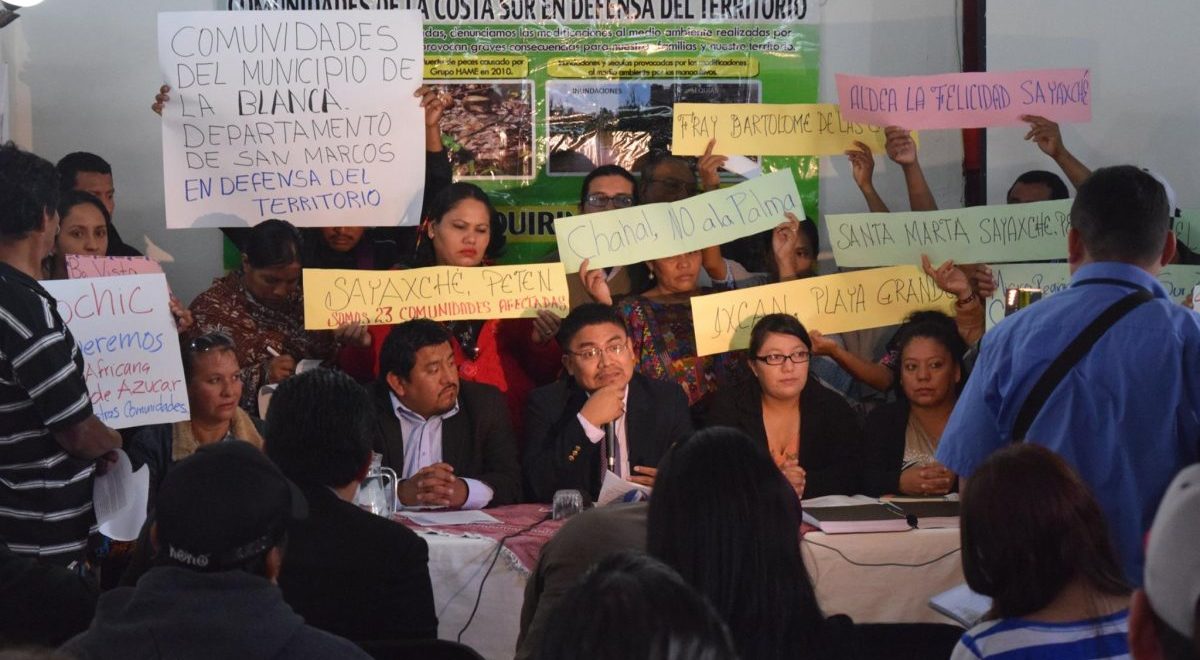Last week, representatives from communities affected by palm oil expansion in Guatemala delivered a civil society petition with nearly 50,000 signatures to the Guatemalan Attorney General demanding justice for the killing of environmental defender Rigoberto Lima.
Rigoberto was shot outside the local courthouse in Sayaxché, Petén, on September 18, just one day after a Guatemalan judge ordered the palm oil company Reforestadora Palma de Petén S.A. (REPSA) to suspend its operations for six months.
Many media outlets have reported the likely connection between his assassination and the leadership role he played in community demands to investigate the company’s alleged role in the contamination of the La Pasión River in northern Guatemala.
A school teacher and indigenous activist, he had been one of the first to report the mass die-off of fish in the river this spring. On September 17, the company was ordered to suspend its operations to protect the environment while an investigation into the source of the contamination is carried out. On November 30, Guatemalan media reported that another court had allowed the company to resume operations even though the investigation has not been completed.
When handing over the petition, the community leaders met with the prosecutor, and demanded that action be taken to move the case forward and hold those responsible to account.
A copy of the petition was also sent to the United States embassy in Guatemala, which responded that they would follow up with the US State Department about the case, and would express concerns to the Guatemalan government about the progress of investigations.
The activists also held a press conference thanking supporters in numerous countries who signed the petition circulated by Friends of the Earth, the Guatemalan Human Rights Commission and ActionAid USA.
Women and men from the affected communities explained the steps the communities are taking to put an end to the environmental contamination and loss of land that indigenous communities are facing at the hands of palm oil companies.
Juan Castro of the Association of Mayan Lawyers gave an account of the recent hearings on Palm Oil and Human Rights held by the Inter-American Commission on Human Rights of the Organization of American States in Washington DC, and explained how the communities are responding to the Guatemalan government’s arguments in favor of the companies (see a video of the hearing in Spanish here).
The communities anticipate that a favorable decision by the Commission will increase the international pressure on the Guatemalan government to protect indigenous community land rights, and stop human rights abuses by palm oil companies.



